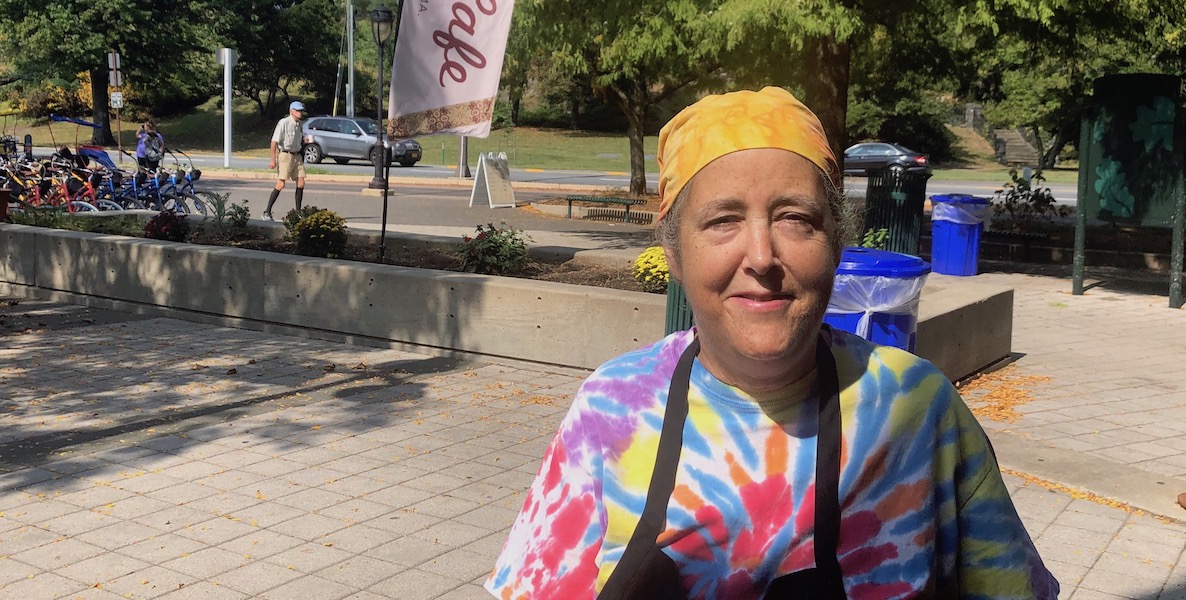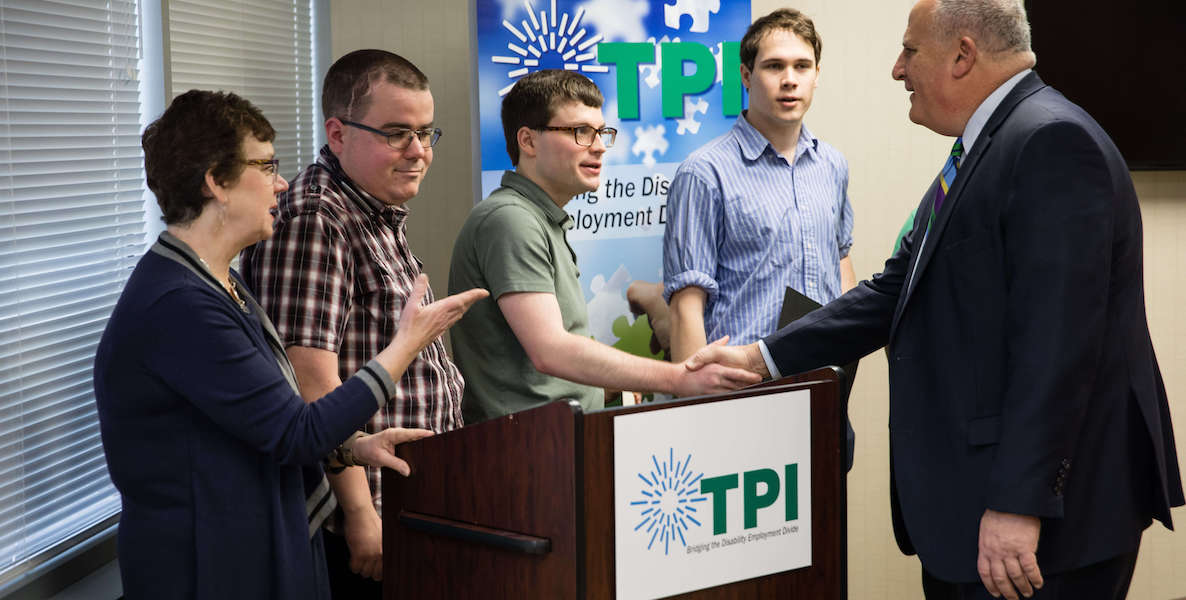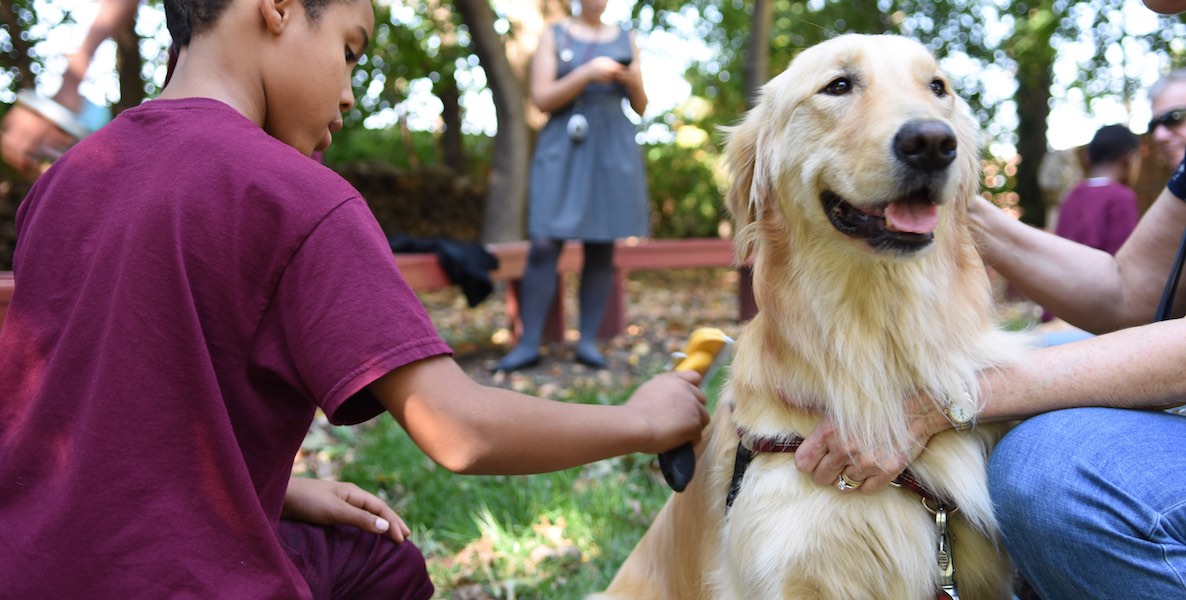For most job applicants, the process of meeting with HR and potential managers and colleagues looks pretty consistent: Make small talk. Discuss what you’ll bring to the team. Spitball some ideas.
Repeat.
But candidate-screening at Wilmington, Delaware-based TPI, The Precisionists, Inc., is a completely different ballgame. Here, candidates are tasked with actual projects, using highly sophisticated LEGO kits called LEGO Mindstorms. The sets come with a battery pack and lengthy instructions. And for people on the autism spectrum, they’re a far better indicator of how well a candidate will perform in roles like software development and testing than any pony show of chit-chatting in your one uncomfortable suit could ever be.
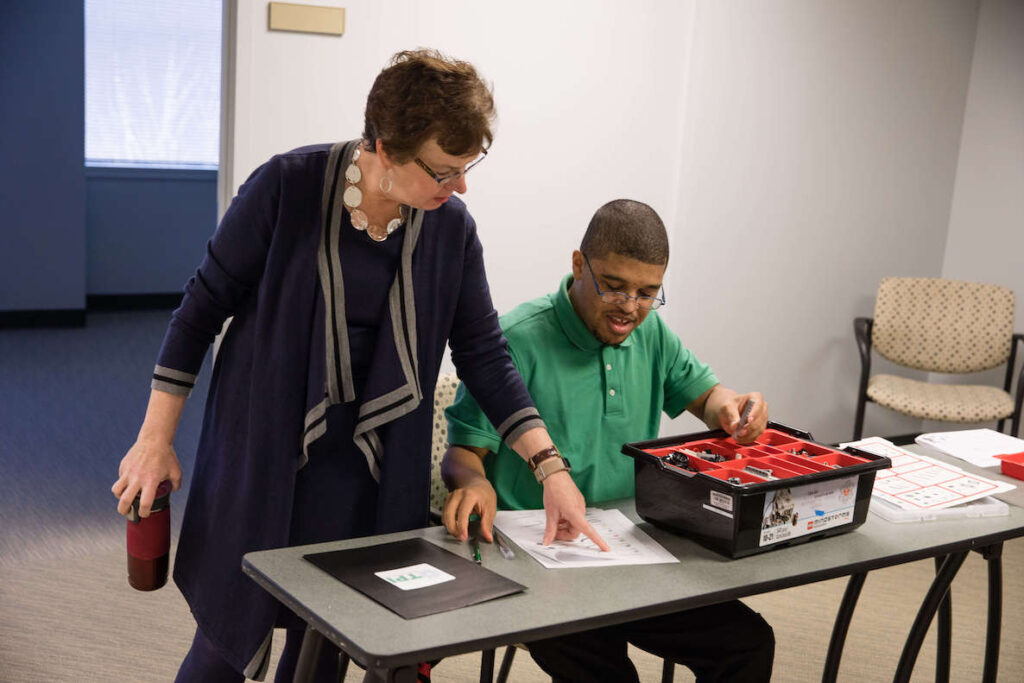
“We don’t do a traditional HR interview because these individuals typically don’t do well in traditional interviews—they may not look you in the eye, they may fidget, they may not make small talk. And these have been career-killers for people over the years,” says TPI’s founder and CEO Ernie Dianastasis.
Spread the word Do Something
Dianastasis would know what it takes to have chops in the world of information technology: He spent 25 years in IT, first at IBM, and then as a co-founder of CAI, one of the largest IT firms in the Delaware Valley.
“I can see the word ‘disability’ just kind of melting away, so that you end up having neurotypical and neurodiverse people working side by side to create really good outcomes,” Dianastasis says.
But an interesting thing happened on his way to being an IT lifer: In 2013, then-Governor of Delaware Jack Markell was named head of the National Governors Association. Markell chose “employing people with disabilities for a better bottom line” as his year-long platform, and asked Dianastasis, as a successful business leader, to attend a meeting about the issue.
It was there that Dianastasis met Thorkil Sonne, a Danish father of a child with autism, who pioneered an organization to assess, train, and employ people with developmental disabilities. Blown away by Sonne’s success, Dianastasis flew to Copenhagen to observe his program.
Soon after, Sonne moved with his family to Delaware and opened an outpost of his organization, and the two like-minded men collaborated to create 40 positions for people on the autism spectrum at Dianastasis’s company.
The matchups were so successful, that Dianastasis decided to go all in: He sold his stake in the company he helped build, and in 2016 launched TPI with the mission of employing 10,000 people with disabilities by the year 2025.
Working with state agencies that support people with disabilities, and nonprofit and private organizations, like Easter Seals and Autism Delaware, for example, TPI invites candidates to informational workshops; the next phase includes the LEGO Mindstorm projects woven into four weeks of training with certified instructors in both job-training, and soft skills, like how to make presentations, how to work on teams, email etiquette, and the dos and don’ts of being in a professional work environment.
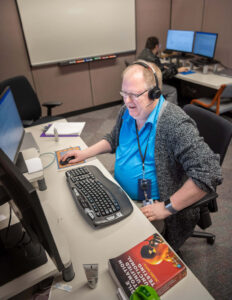
“We’re teaching them all of these things they never had a shot at before because all they’ve experienced is facing rejection over the years,” Dianastasis says.
While the training team prepares candidates for jobs, Dianastasis and his colleagues get their customers ready. “We go in and we look at the work and how it’s being done,” he says. “And because we’re IT practitioners ourselves and very capable in technology, we’re able to lay the work out in a fashion where TPI individuals can come in and be successful.”
They also provide corporate clients with autism awareness orientation.
In addition to its Wilmington headquarters, TPI has outposts in Nashville and Phoenix, and will be opening two more (for-now-confidential) locations before the end of the year. They also plan to expand to work with other communities with disabilities, like veterans, and the visually and hearing-impaired.
Matt Norman has a degree in computer information systems and game design About disability rights historyLEARN MORE
Other local TPI clients include Independence Blue Cross, PECO Energy, Drexel, and Pfizer. It remains to be seen if or how the coronavirus will impact TPI’s project roster.
“We don’t do a traditional HR interview because these individuals typically don’t do well in traditional interviews—and yet none of those things have anything to do with whether somebody could be really good at doing data entry or testing software,” Dianastasis says.
TPI’s business model, Dianastasis explains, is akin to any other consultancy. “We are a services company: Think Accenture, think IBM,” he says. “So we have to perform services as well as those guys. We train our staff, we get them ready, and then when they finish their training, they’re employees of The Precisionists; they’re part of our consulting force, and we pay them market rates to go in and do projects for companies.”
Dianastasis remains committed to empowering the kinds of candidates who often get overlooked, and envisions a U.S. workforce in which everyone is given the best chance to thrive; they’ve already successfully employed 120 people, and will be able to rapidly scale through their expansion to other cities and within existing TPI locations.
“It may take five or 10 years, but I see people across the country realizing that neurodiverse people [as those with developmental disabilities are increasingly referred] have just as much to offer—and in many respects more—than neurotypicals,” says Dianastasis.
Hear from TPI employeesVideo
As Dianastasis and his team work toward reaching their 2025 goal, he is grateful every day for the path he chose in 2016.
“When Governor Markell called me that day and said I think this could be the perfect intersection of doing what you like to do, and giving back at the same time, he was 100 percent right,” Dianastasis says. “I still get to do IT, I still get to do all the stuff that I liked to do my whole career, but then to have this mission wrapped through the business model—instead of just dropping everything and going to a charity golf event—this is so much better, because you get to actually live it, and impact it, just by building the business.”



